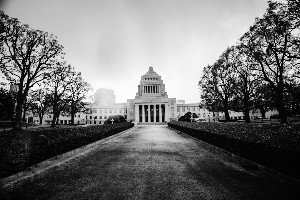Nurfadillah, Sulkifli
Evolusi Teori Linguistik Dalam Tradisi Arab: Dari Al-Khalil Hingga Ibn Jinni
Introduction
Evolusi teori linguistik dalam tradisi arab: dari al-khalil hingga ibn jinni. Evolusi teori linguistik Arab klasik (8-10 M) oleh Al-Khalil, Sibawayh, & Ibn Jinni. Kaji kontribusi fonologi, morfologi, sintaksis, & semantik bahasa Arab.
Abstract
This research aims to examine the evolution of classical Arabic linguistic theory from the 8th to 10th centuries CE by analyzing the contributions of three principal figures: al-Khalil ibn Ahmad, Sibawayh, and Ibn Jinni. Through historical-comparative approaches and textual analysis of fundamental works such as Kitab al-'Ayn, al-Kitab, and al-Khasa'is, this study traces the transformation of linguistic thought from phonological and morphological foundations, through syntactic systematization, to semantic-philosophical development. The research methodology involves in-depth philological examination of classical manuscripts and cross-period comparison to identify patterns of theoretical evolution. The findings reveal methodological continuity based on sima'i (auditory transmission) and qiyas (analogical reasoning) transmitted across generations, alongside conceptual innovations that enriched the theoretical dimensions of Arabic linguistics. These discoveries illuminate how each period presented distinctive contributions: al-Khalil with lexical-phonological systematization, Sibawayh with comprehensive grammatical codification, and Ibn Jinni with philosophical elaboration of language. This research confirms that the Arabic linguistic tradition is dynamic, receptive to intellectual development, and maintains significant relevance in contemporary linguistic discourse.
Review
The proposed research, "Evolusi Teori Linguistik Dalam Tradisi Arab: Dari Al-Khalil Hingga Ibn Jinni," outlines a highly relevant and meticulously planned examination of the development of classical Arabic linguistic theory. The study clearly articulates its ambition to trace the intellectual evolution across the 8th to 10th centuries CE, focusing on the foundational contributions of al-Khalil ibn Ahmad, Sibawayh, and Ibn Jinni. The methodology, rooted in historical-comparative approaches and rigorous textual analysis of seminal works like *Kitab al-'Ayn*, *al-Kitab*, and *al-Khasa'is*, promises a deep, philological engagement with primary sources, laying a solid foundation for its claims. A significant strength of this research lies in its structured approach to dissecting the transformation of linguistic thought, moving from initial phonological and morphological foundations, through comprehensive syntactic systematization, to advanced semantic-philosophical development. The abstract effectively highlights the distinct yet interconnected contributions of each principal figure: al-Khalil with his pioneering lexical-phonological systematization, Sibawayh with his unparalleled grammatical codification, and Ibn Jinni with his sophisticated philosophical elaboration of language. Furthermore, the identification of methodological continuity rooted in *sima'i* (auditory transmission) and *qiyas* (analogical reasoning) across generations, alongside the conceptual innovations introduced, provides a nuanced understanding of how the tradition maintained coherence while evolving intellectually. The findings outlined in the abstract confirm that the Arabic linguistic tradition is not merely static but profoundly dynamic, characterized by its receptivity to intellectual development and internal critique. This study's illumination of how these historical developments unfolded offers crucial insights that maintain significant relevance in contemporary linguistic discourse, particularly for understanding the historical roots of modern linguistic theories and comparative linguistics. By meticulously tracing this evolution, the research makes a valuable contribution to the history of science and linguistics, demonstrating the enduring intellectual vitality and sophistication of classical Arabic scholarship. This paper is poised to be an important reference for scholars in Arabic studies, history of linguistics, and comparative philology.
Full Text
You need to be logged in to view the full text and Download file of this article - Evolusi Teori Linguistik Dalam Tradisi Arab: Dari Al-Khalil Hingga Ibn Jinni from Journal of Arabic Education and Linguistics .
Login to View Full Text And DownloadComments
You need to be logged in to post a comment.
Top Blogs by Rating
Unlocking Life's Source Code:...
By Sciaria
Big Data's Unintended Conseque...
By Sciaria
The Gamification of Governance...
By Sciaria
Favorite Blog
Life's Grand Algorithm: Is Bio...
By Sciaria
Bending Light, Shaping Reality...
By Sciaria
Phantom Power: Unmasking Your...
By Sciaria





